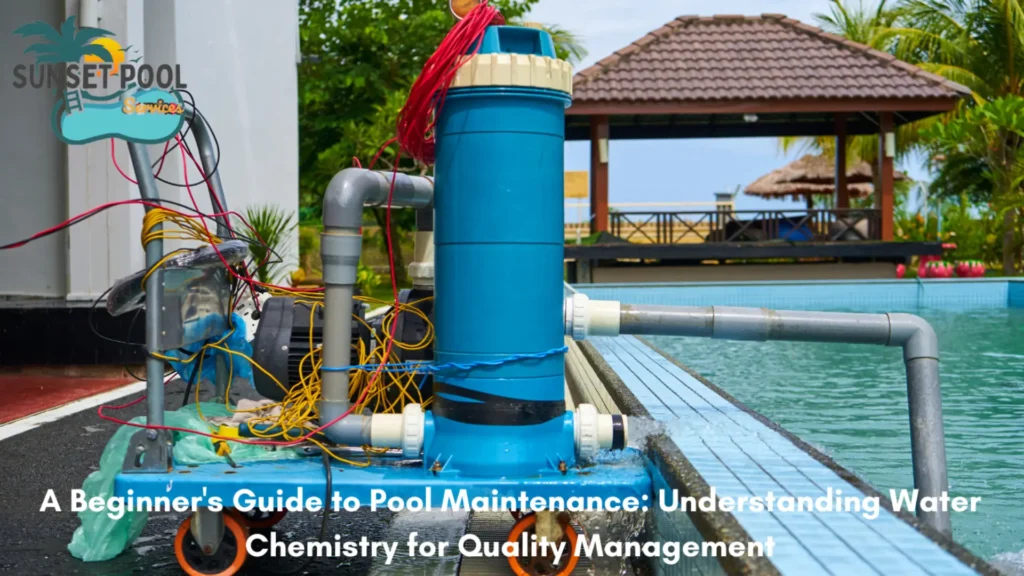For new pool owners, understanding the basics of pool maintenance can feel overwhelming. However, grasping the fundamentals of water chemistry is essential for ensuring a clean, safe, and enjoyable swimming environment. This guide will help you navigate the key aspects of pool maintenance and empower you to manage your pool’s water quality effectively.
The Importance of Water Chemistry
Water chemistry is a critical aspect of pool maintenance that directly impacts the safety and clarity of your pool water. Maintaining the proper balance of chemicals not only ensures a pleasant swimming experience but also protects the pool structure and equipment from damage. Key elements to monitor include pH levels, chlorine, alkalinity, and calcium hardness. Proper water chemistry prevents algae growth, reduces cloudy water, and keeps the water safe for swimmers, making it essential for any pool owner to understand.
Key Components of Pool Water Chemistry
To maintain ideal water quality, it’s crucial to regularly test the pool water. The pH level should ideally be between 7.4 and 7.6. This range ensures that chlorine works effectively and minimizes skin and eye irritation for swimmers. Chlorine levels should remain between 1 and 3 parts per million (ppm) to effectively disinfect the water. Alkalinity acts as a buffer for pH levels, with a recommended range of 80 to 120 ppm. Monitoring these levels will help prevent drastic changes that can affect pool enjoyment and maintenance. Regular testing can be done with test strips or a digital testing kit, and it’s advisable to check water chemistry at least once a week.
Managing Chemical Additions
Once you understand the ideal levels for your pool, managing chemical additions becomes the next step in pool maintenance. If your pH is too low, you can raise it with a pH increaser, while a pH decreaser will help if it’s too high. For chlorine, using shock treatments can help boost levels after heavy use or rainfall. Additionally, adding stabilizers can prevent chlorine from dissipating too quickly in sunlight. Following the manufacturer’s instructions for chemical products is essential to avoid over-treating your pool, which can lead to imbalances that require further adjustments.
Regular Maintenance Practices
Maintaining proper water chemistry is just one part of pool maintenance. Regular cleaning is also essential to keep the pool inviting. Skimming the surface for debris, vacuuming the bottom, and brushing the walls will help maintain cleanliness. Additionally, cleaning the filter and checking pool equipment ensures everything operates efficiently. A well-maintained pool will not only look inviting but will also reduce the workload for your water chemistry management, as a clean pool is easier to keep balanced.
Understanding the fundamentals of water chemistry is crucial for effective pool maintenance. By regularly testing water quality, managing chemical additions, and incorporating regular cleaning practices, you’ll create a safe and enjoyable swimming environment. Knowledge of pool maintenance will empower you to protect your investment while providing endless enjoyment for family and friends. Embrace the journey of pool ownership, and you’ll reap the benefits of a sparkling, well-maintained oasis right in your backyard.
Learn more:
The Significance of Seasonal Pool Maintenance: Getting Your Pool Ready for Safe Summer Enjoyment
How Consistent Pool Maintenance Can Help You Save on Repairs and Chemical Expenses Today

